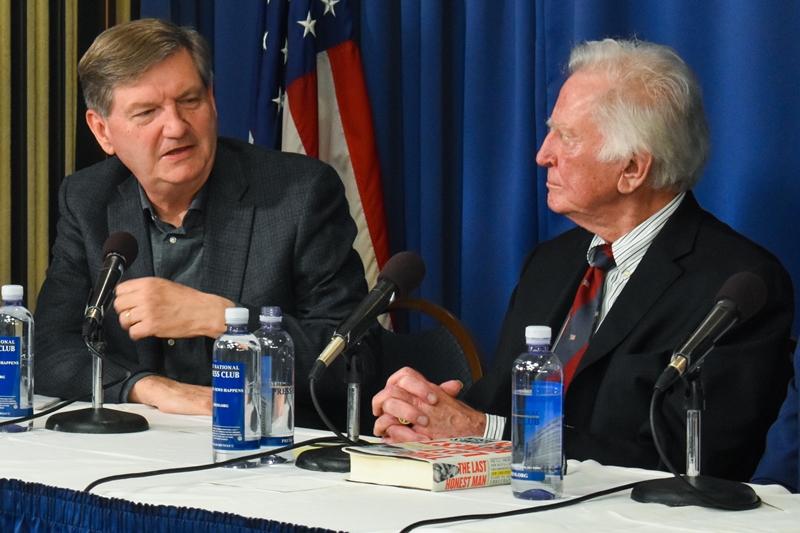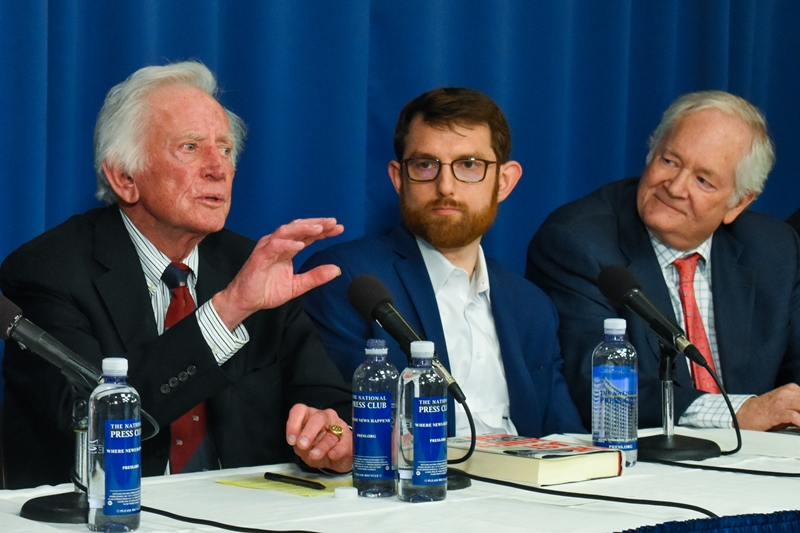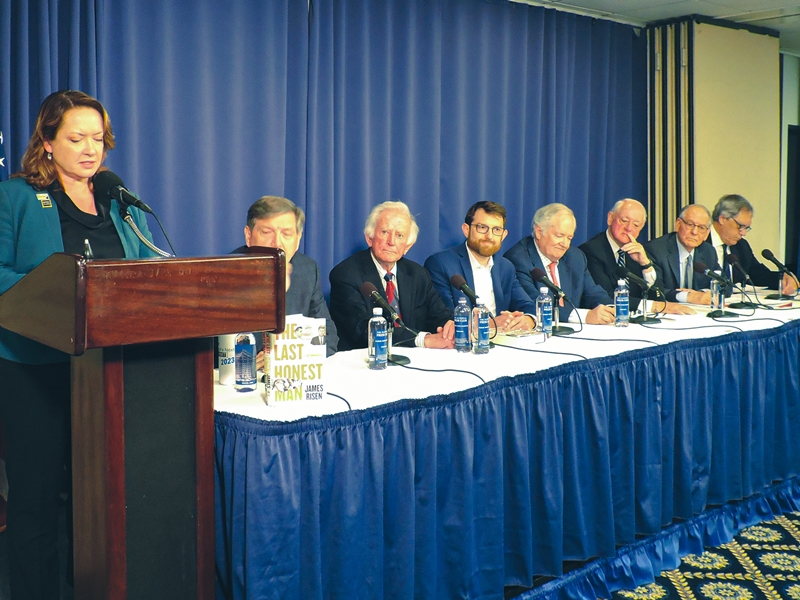The panel emphasized the Church Committee's bipartisanship. Hart noted that although Democrats had won big in the 1974 midterms and had 60 Senators, then Senate Majority Leader Mike Mansfield set up the Church Committee with six Democrats and five Republicans, giving his own party a one-vote majority. He asked Sen. Philip Hart to chair the committee, but he declined because he had just been diagnosed with cancer.



